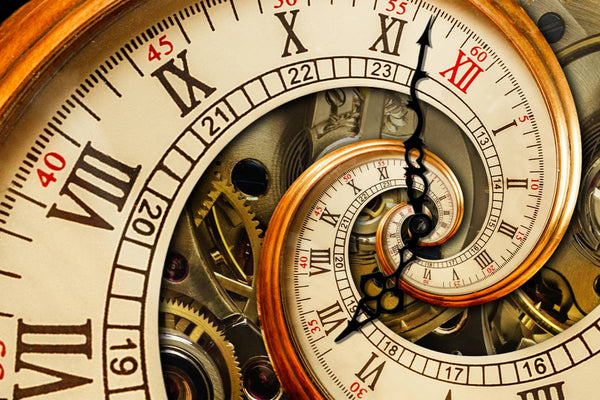Time in Space: A Reality That Challenges Our Earthly Perceptions
Introduction
Time is a constant in our daily lives on Earth, but in space, this concept becomes much more complex. Between time dilation and traveling at incredible speeds, time behaves differently as soon as we leave Earth's orbit. This article explores the fascinating mysteries of time in space and its implications for space exploration.

1. Time in the Universe: A Relative Constant
On Earth, time appears to flow at a uniform rate. However, according to Einstein's theory of relativity, time is not absolute. It depends on two major factors:
- Speed : The faster an object moves, the more time slows down for it compared to a stationary observer.
- Gravity : The closer an object is to a source of intense gravity (such as a star or a black hole), the more time slows down for it.
Concrete example :
Astronauts aboard the International Space Station (ISS) experience minimal time dilation. Due to their speed of 28,000 km/h, their biological clocks are slightly slower than those of people on Earth.

2. Time Dilation: Time Stretching
When an object approaches the speed of light, time expands dramatically. This is called time dilation:
- In a ship traveling at 90% the speed of light : One year on board could correspond to several years on Earth.
- Near a black hole : Extreme gravitational forces slow down time. The movie Interstellar illustrates this perfectly: one hour on a planet near a black hole is equivalent to several Earth years.

3. Implications for interstellar travel
If we ever want to explore distant solar systems, we will need to take these temporal effects into account:
- The twin paradox : A twin traveling at close to the speed of light would return to Earth younger than the twin who remained on Earth.
- Communication with Earth : The time lag could complicate communication with astronauts on missions.
This also raises a philosophical question: Can one really return to the “present” after a long interstellar journey?

4. A new perspective on time
These phenomena disrupt our linear perception of time. In space, time becomes a flexible dimension, influenced by speed and gravity. This forces us to rethink our relationship with the universe and even our own existence.
Scientists continue to push the boundaries of our understanding, seeking ways to harness these phenomena for future journeys through space-time.

Conclusion
Time, as we know it on Earth, is far from universal. In space, it follows fascinating rules that defy our intuition. Understanding these concepts is essential for exploring the universe and, who knows, perhaps one day traveling to other galaxies.
And you, what would you do if you could slow down time?


